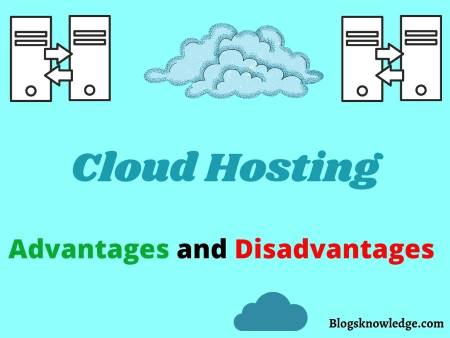When you’re deciding to buy Cloud Hosting, you have to consider your needs carefully. These are some of the advantages and disadvantages of each option. It’s important to know the pros and cons before deciding which one is best for your business.

Advantages of Cloud Hosting
The advantages of Cloud Hosting include the ability to scale up and down as needed without affecting the rest of your business. Another advantage is that your business can be accessed anywhere, anytime, from any internet connection, because your website is hosted in the data centre of an online service provider.
Cloud hosting is often described as a cost-effective solution to web hosting needs. Because multiple virtual servers power each individual website, cloud hosting is more reliable than traditional shared hosting.
However, if one physical server goes down, so does almost all websites that are hosted using that server. This is because when your website goes down the physical server is also going down. This means if your website experiences a traffic spike or a technical problem, it can be extremely disruptive to all of your customers. The good news is that this is usually not a problem with cloud hosting.
One of the benefits of cloud hosting is that many times the service is offered on a pay per use basis. This allows website owners to get all of the advantages without paying a large amount of money upfront. The downside is that there may be limitations to what can be shared with others. You may not be able to share the resources with other website owners at the same level you can with others.
Another advantage of cloud hosting is that it’s more scalable than traditional websites. Although many businesses want their website to be extremely scalable so that they have more flexibility when it comes to managing their website, some of them don’t necessarily need this feature. However, many do.
If you don’t have the ability to manage your own website because of technological problems, then cloud hosting is better for your business. The reason why it’s more scalable is because the technology is there to make it happen. The only thing you have to do is find a provider that offers this to you.
Disadvantages of Cloud Hosting
One of the disadvantages of a cloud hosting environment is that it’s not as flexible. Because you’re not in control of the resources, you won’t be in a position to make adjustments to the resource configuration for your website based on uptime requirements.
You won’t be able to increase the disk space or bandwidth at will. Therefore, you won’t be in a position to make adjustments to your website based on different times. This means that you won’t be in a position to make adjustments to your website based upon the popularity of your websites or the number of people who visit your website. The only thing that you can do is to increase or decrease the traffic that visits your website and that’s a very limited option.
While there are some disadvantages associated with this type of hosting option, there are also some benefits associated with it. The advantages include cost-effectiveness, flexibility, higher uptime, increased disk space and bandwidth, ease of maintenance, support for various protocols, reliability and security.
This is why many businesses are looking towards this option for their website needs. The cloud hosting option isn’t a good choice for every business because of these factors. However, if you meet the following criteria, then it may be a great choice for your website needs.
Read also… Check the Different Types of Websites



